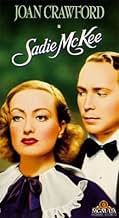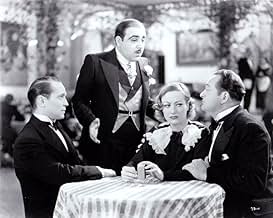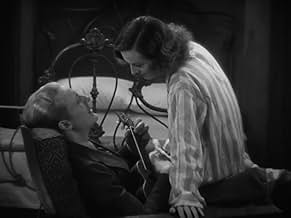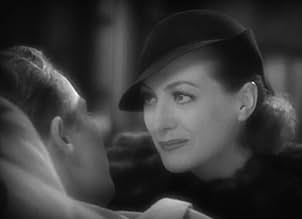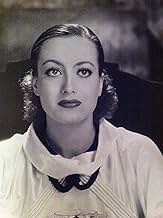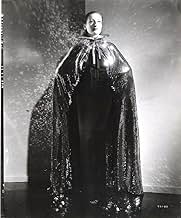CALIFICACIÓN DE IMDb
6.9/10
1.7 k
TU CALIFICACIÓN
La fortuna de una chica trabajadora mejora cuando se casa por dinero, pero la felicidad no se gana tan fácilmente.La fortuna de una chica trabajadora mejora cuando se casa por dinero, pero la felicidad no se gana tan fácilmente.La fortuna de una chica trabajadora mejora cuando se casa por dinero, pero la felicidad no se gana tan fácilmente.
Leo G. Carroll
- Phelps
- (as Leo Carroll)
Candy Candido
- Cafe Entertainer
- (as Candy and Coco)
Otto Heimel
- Cafe Entertainer
- (as Candy and Coco)
Norman Ainsley
- Second Butler - at Downstairs Meeting
- (sin créditos)
Hooper Atchley
- Intern with Dr. Briggs
- (sin créditos)
Nellie Bly Baker
- Downstairs Laundress
- (sin créditos)
Jack Baxley
- Short-Order Cook
- (sin créditos)
- Dirección
- Guionistas
- Todo el elenco y el equipo
- Producción, taquilla y más en IMDbPro
Argumento
¿Sabías que…?
- TriviaOne of the first films to treat alcoholism as a serious problem, instead of a comic device.
- ErroresWhen Tommy is in his hospital room he makes Dr. Briggs promise not to tell Sadie of his condition. However, when Dr. Briggs leaves the room, Sadie is there with the other doctors and she already knows. Dr. Briggs then says, "He made me promise he wouldn't tell her." This dialogue obviously makes no sense and is wrong. What he meant to say was, "He made me promise not to tell her."
- Citas
Sadie McKee Brennan: [showing off her bedroom] Here it is.
Opal: Lady, when you say, "I do take thee," how you take him.
Sadie McKee Brennan: [chuckles]
Opal: Got this all to yourself?
Sadie McKee Brennan: Yep, all to myself.
Opal: Always all to yourself?
Sadie McKee Brennan: Yep.
Opal: Well, a whole lot of us do a whole lot more for a whole lot less.
- ConexionesFeatured in ¿Qué pasó con Baby Jane? (1962)
- Bandas sonorasAll I Do Is Dream Of You
(1934) (uncredited)
Music by Nacio Herb Brown
Lyrics by Arthur Freed
Played during the opening credits
Sung by Gene Raymond three times
Sung also by Earl Oxford in a show
Opinión destacada
Well-made Clarence Brown pre-Code soaper with Joan Crawford (Brown directs Joan 5 times) costumed by Adrian (he does this a total of 28 times) and photographed by Oliver T. Marsh (he did a total of 15 films with Joan). First class production crew yields a first class film.
Joan plays a `shopgirl' character that could have had no heart (Barbara Stanwyck would have excelled at such an interpretation) but the writers gave her an innate goodness that warms Sadie McKee to her audience. Edward Arnold stands out as the drunken millionaire that must have served as a role model for Dudley Moore years later in `Arthur.' His sock in the jaw to Joan is unexpected and looks very real. Gene Raymond does well as the love interest and if that was he singing he did it well. His final scene is very good and somewhat unusual. Franchot Tone does not appear to have had the opportunity to develop his character sufficiently to make him more effective. It must have been good enough, because he got Joan after the film was completed. A somewhat zaftig Esther Ralston still manages to demonstrate why she was `The American Venus' and why Raymond spent so much of his time smiling. Why her character does not react to Raymond singing a love song to Joan in the Apollo Theater is beyond me. Leo G. Carroll does a superb job as the butler his distain for the lower class Joan is great.
Joan's character has many choices in this film and she generally comes out ahead with some short deviations into taking what she can get when she can get it. She gives great looks at Arnold when she realizes she must be his lover now that they are married and later to her friend when she exclaims, `So I've got everything, huh?' and while reflecting what she has done after throwing Tone out of her house. Arnold also has choices and responds well to the outcome of the marriage. Although the two policemen in the film do not take the `tip' offered by Joan, they run out after the taxicab man who gets their share presumably to get their cut out outside the presence of Joan.
This is excellent movie making and a must see for Joan Crawford fans (or anyone else that wants to see a good movie). Highly recommended.
Joan plays a `shopgirl' character that could have had no heart (Barbara Stanwyck would have excelled at such an interpretation) but the writers gave her an innate goodness that warms Sadie McKee to her audience. Edward Arnold stands out as the drunken millionaire that must have served as a role model for Dudley Moore years later in `Arthur.' His sock in the jaw to Joan is unexpected and looks very real. Gene Raymond does well as the love interest and if that was he singing he did it well. His final scene is very good and somewhat unusual. Franchot Tone does not appear to have had the opportunity to develop his character sufficiently to make him more effective. It must have been good enough, because he got Joan after the film was completed. A somewhat zaftig Esther Ralston still manages to demonstrate why she was `The American Venus' and why Raymond spent so much of his time smiling. Why her character does not react to Raymond singing a love song to Joan in the Apollo Theater is beyond me. Leo G. Carroll does a superb job as the butler his distain for the lower class Joan is great.
Joan's character has many choices in this film and she generally comes out ahead with some short deviations into taking what she can get when she can get it. She gives great looks at Arnold when she realizes she must be his lover now that they are married and later to her friend when she exclaims, `So I've got everything, huh?' and while reflecting what she has done after throwing Tone out of her house. Arnold also has choices and responds well to the outcome of the marriage. Although the two policemen in the film do not take the `tip' offered by Joan, they run out after the taxicab man who gets their share presumably to get their cut out outside the presence of Joan.
This is excellent movie making and a must see for Joan Crawford fans (or anyone else that wants to see a good movie). Highly recommended.
- Jim Tritten
- 7 ago 2002
- Enlace permanente
Selecciones populares
Inicia sesión para calificar y agrega a la lista de videos para obtener recomendaciones personalizadas
- How long is Sadie McKee?Con tecnología de Alexa
Detalles
Taquilla
- Presupuesto
- USD 612,000 (estimado)
- Tiempo de ejecución1 hora 33 minutos
- Color
- Relación de aspecto
- 1.37 : 1
Contribuir a esta página
Sugiere una edición o agrega el contenido que falta

Principales brechas de datos
By what name was Sadie McKee (1934) officially released in India in English?
Responda
